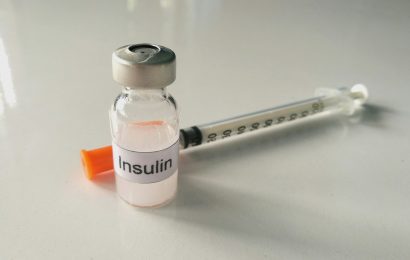As my article “When Diabetes Affects Your Sex Life” in the May/June 2008 issue of Diabetes Self-Management would suggest, sex and intimacy are two of my favorite topics, so I made sure to attend the panel on sexuality at June’s ADA Scientific sessions. It wasn’t great, but I learned some things.
Dr. Irwin Goldstein of the University of California, San Diego, and Editor-in-Chief of The Journal of Sexual Medicine gave the hard science look. Dr. Goldstein listed some ways that diabetes can interfere with sex. At the top of the list were circulation problems, which can affect lubrication and erections, and nerve damage, which may interfere with sensation or cause pain. Many people have both circulation and nerve problems.
People with diabetes, especially Type 2, tend to have lower-than-normal levels of sex hormones, especially testosterone. In both men and women, low levels of testosterone often cause low levels of desire. Goldstein said that birth control pills can also lower testosterone levels in women. Taking supplemental testosterone or DHEA (a testosterone precursor) can help some men and women regain desire.
Psychological Factors
Psychologist Mitchell Tepper, founder and president of The Sexual Health Network and SexualHealth.com, is one of the nation’s leading sex educators. He talked about psychological issues affecting sexuality. Such things as feeling unattractive, blaming yourself for diabetes, and depression may damage both sexual desire and function. So can stress over health, money problems, and family issues.
Helping Partners Cope
I really got a lot from Dr. Lawrence Fisher of the University of California, San Francisco, who stressed the problems and needs of partners of people with chronic illness. In the work my partner and I do with sexuality and disability, we have found that partners’ needs are usually ignored. It was good to hear a doctor talking about these problems.
Partners as well as patients may feel unattractive. They may also find their partners unattractive. Patients and partners may blame each other for health-related problems. When one member of a couple can’t get an erection or has vaginal dryness or pain with intercourse, partners may blame themselves. Dr. Fisher said that studies show that partners of people with diabetes get almost as much depression as the people with diabetes themselves do.
Both partners may grieve the loss of sexual spontaneity that diabetes may bring—for example, the need to check blood glucose or deal with an insulin pump.
Dr. Fisher pointed out that all these issues can be dealt with by talking openly about them. This may sometimes involve a professional counselor. But some cultures do not approve of talking openly about sex, which makes it harder. He recommends educating both partners and seeing couples together at appointments.
Discussion
Donna Rice, former president of the American Association of Diabetes Educators, pointed out that low testosterone levels increase risk of heart attacks and strokes, so people should get their testosterone levels checked. She strongly encouraged the use of the erectile dysfunction (ED) drugs such as Viagra, Cialis, and Levitra. She said these drugs can safely be used every day by most people.
But I had to ask. The major sexual problems in diabetes seem to relate mostly to intercourse—either poor erections or lubrication or painful intercourse. So why aren’t we teaching about nonintercourse sex (my and my wife’s specialty)?
Things lovers can do to each other with their hands, mouths, and other parts can create some of the best, closest sexual experiences of their lives, and these acts are safe and don’t require drugs. They may call for lubricants, but those are cheap and safe.
Everyone on the panel said that alternative ways of having sex were a good idea, and Dr. Tepper even suggested noncontact sex as a possibility. I’ll have to find out more about that.
Do you think partners’ needs are addressed by the medical system or by the providers you have seen? Has diabetes brought you and your partner closer together or pushed you apart? When it comes to sex, have you been able to maintain your sex life with diabetes? Have you tried any new approaches to sexuality? Would you consider trying some new things? Let us know with a comment below.




